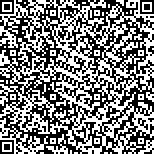| 李怡欣,张君莹,杨 波,等.免疫治疗联合新辅助化疗或放化疗对局部晚期食管鳞状细胞癌术后并发症的影响[J].肿瘤学杂志,2025,31(6):508-515. |
| 免疫治疗联合新辅助化疗或放化疗对局部晚期食管鳞状细胞癌术后并发症的影响 |
| Postoperative Complications in Patients with Locally Advanced Esophageal Squamous Cell Carcinoma Receiving Neoadjuvant Immunotherapy Combined with Chemotherapy or Chemoradiotherapy |
| 投稿时间:2025-02-26 |
| DOI:10.11735/j.issn.1671-170X.2025.06.B006 |
|
 |
| 中文关键词: 食管肿瘤 鳞状细胞癌 外科手术 免疫疗法 并发症 新辅助化疗 新辅助放化疗 |
| 英文关键词:esophageal neoplasms squamous cell carcinoma surgery immunotherapy complication neoadjuvant chemotherapy neoadjuvant chemoradiotherapy |
| 基金项目:国家自然科学基金(82202890);北京生命绿洲公益服务中心-肿瘤领域科研基金项目(BH004506) |
|
| 摘要点击次数: 241 |
| 全文下载次数: 125 |
| 中文摘要: |
| 摘 要:[目的] 比较局部晚期食管鳞状细胞癌(locally advanced esophageal squamous cell carcinoma,LA-ESCC)患者接受直接手术和免疫治疗联合新辅助化疗(neoadjuvant immunotherapy combined with chemotherapy,nICT)或放化疗(neoadjuvant immunotherapy combined with chemoradiotherapy,nICRT)后进行手术的术后并发症差异。[方法] 回顾性收集2020年1月至2022年1月在江苏省肿瘤医院接受食管癌根治性切除术的患者。通过1∶1∶1倾向性评分匹配(propensity score matching,PSM)消除组间基线特征差异后,直接手术组、nICT组和nICRT组各有87例患者纳入分析。术后并发症根据食管癌并发症共识小组(Esophageal Cancer Complications Consensus Group,ECCG)标准进行系统分类和评估。[结果] nICT组和nICRT组需要干预的心力衰竭(8.0% vs 13.8% vs 3.4%)以及肝功能异常(34.5% vs 47.1% vs 28.7%)发生率均高于直接手术组,其中nICRT组与直接手术组的差异有统计学意义(P<0.05)。其他各系统并发症发生率在3组间差异均无统计学意义(P>0.05)。与直接手术组[(244±58) min]相比,nICT组[(263±61) min]和nICRT组[(375±68) min]的手术时间均显著延长(P<0.001)。nICT组和nICRT组术中血管活性药物的使用率显著高于直接手术组(48.3% vs 64.4% vs 32.2%,P<0.001),且nICRT组血管活性药物的使用率较nICT组显著增加(P<0.05)。nICT组术中输血的患者比例较nICRT组更高(9.2% vs 0,P<0.05)。nICRT组术中尿量(P<0.001)和住院费用(P=0.026)均显著高于其他两组。新辅助治疗期间,nICRT组较nICT组更易出现白细胞减少(86.2% vs 79.3%)、贫血(85.1% vs 75.9%)及粒细胞减少(75.9% vs 72.4%),但差异均无统计学意义(P>0.05);两组患者均未观察到免疫相关不良事件。[结论] nICT或nICRT在LA-ESCC患者围手术期的总体安全性良好,但需关注nICRT组心力衰竭、肝功能异常增加的风险。 |
| 英文摘要: |
| Abstract: [Objective] To compare the incidence of postoperative complications in patients with locally advanced esophageal squamous cell carcinoma(LA-ESCC) receiving neoadjuvant immunotherapy combined with chemotherapy (nICT) or chemoradiotherapy (nICRT). [Methods] Clinical datas of LA-ESCC patients who underwent esophagectomy at Jiangsu Cancer Hospital from January 2020 to January 2022 were analyzed. After 1∶1∶1 propensity score matching (PSM) , 87 matched patients were included in each of the surgery alone group, nICT group, and nICRT group. Postoperative complications were evaluated according to the Esophageal Cancer Complications Consensus Group (ECCG) criteria. [Results] The nICT and nICRT groups demonstrated higher rates of clinically significant heart failure (8.0% and 13.8% vs 3.4%) and hepatic dysfunction (34.5% and 47.1% vs 28.7%) compared to the surgery alone group, the difference between nICRT and surgery alone groups was significant (P<0.05). Both neoadjuvant treatment groups exhibited prolonged operation times compared to surgery alone group [(263±61) min and (375±68) min vs (244±58) min, P<0.001]. Intraoperative vasoactive agent utilization was significantly higher in the nICT (48.3%) and nICRT (64.4%) groups compared to the surgery alone group (32.2%) (P<0.001), while nICRT required more frequent vasopressor support than nICT (P<0.05). Transfusion rates differed between nICT (9.2%) and nICRT (0) (P<0.05). Furthermore, the nICRT group showed significantly increased intraoperative urine output (P<0.001) and hospitalization costs (P=0.026) compared to other two groups. During neoadjuvant therapy, hematologic toxicities including leukopenia (86.2% vs 79.3%), anemia (85.1% vs 75.9%), and neutropenia (75.9% vs 72.4%) tended to more prevalent in nICRT than those in nICT, but the difference was not significant (P>0.05). No immune-related adverse events occurred in two neoadjuvant treatment groups. [Conclusion] Both nICT and nICRT demonstrate acceptable perioperative safety profiles in LA-ESCC patients. However, the elevated risks of heart failure and liver dysfunction in the nICRT group warrant clinical vigilance. |
|
在线阅读
查看全文 查看/发表评论 下载PDF阅读器 |